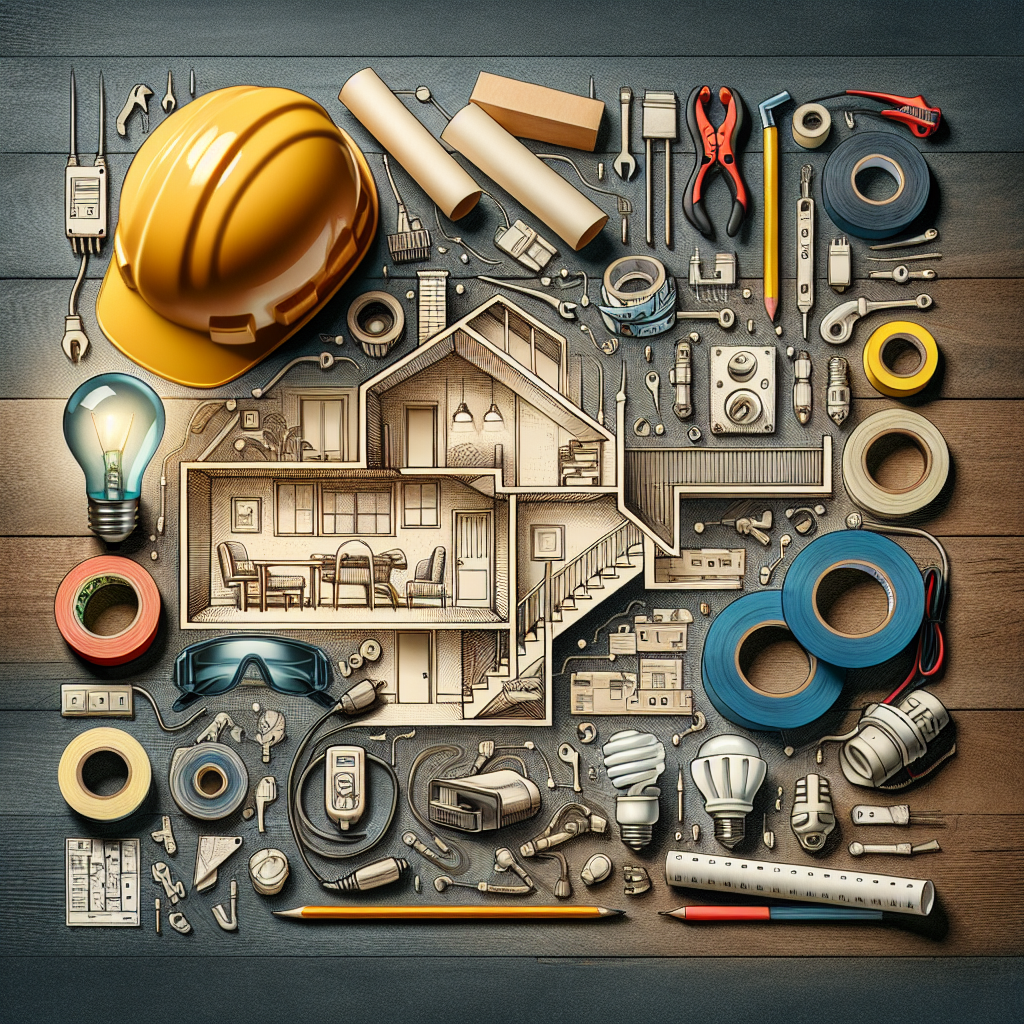Renovating your basement can transform it into a functional and inviting space, but it comes with its own set of challenges. One of the most critical aspects of any renovation project is ensuring that the electrical work is safe and up to code. This guide will walk you through essential electrical considerations for basement renovations, combining practical advice with personal insight to help you navigate this often-overlooked aspect of home improvement.
Understanding Your Electrical Needs
Before diving into the renovation, it’s crucial to assess your electrical needs carefully. Are you planning to create a cozy family room, a home office, or possibly a rental unit? Each of these spaces will require a different approach to electrical planning.
Tip: Take time to envision how you’ll use the space. Jot down all the electronic devices and appliances you plan to use, including lights, televisions, and computers. This preliminary list will guide your electrical setup and ensure adequate outlets and lighting.
Safety First: Inspecting Existing Wiring
Basements often have old wiring that may not meet current safety standards. Before you begin your renovation, it’s essential to inspect the existing electrical systems.
Hire a Professional Electrician
While DIY projects are popular, electrical work can be complicated and potentially dangerous. Hiring a licensed electrician can save you time, money, and ensure your safety. They can evaluate the current system, identify potential hazards, and suggest necessary upgrades to meet code requirements.
Look for Warning Signs
If you’re inspecting the existing wiring yourself, be on the lookout for frayed wires, outdated fuse boxes, or signs of water damage. If you notice any of these issues, it’s critical to consult a professional right away.
Planning Your Electrical Layout
Once you have a clearer picture of your needs and the state of existing wiring, it’s time to plan the electrical layout. Proper planning can enhance both the safety and functionality of your renovated space.
Outlets and Switches
- Adequate Outlets: Ensure there are enough outlets throughout the basement, as they are crucial for avoiding unsightly extension cords. Place outlets in convenient locations to support various furniture arrangements.
- Switch Placement: Install light switches near the entrance of each room, and consider adding dimmers for ambiance in entertainment areas.
Lighting Options
Basements often lack natural light, making adequate lighting crucial. Choose from various lighting options to create a welcoming atmosphere:
- Overhead Lighting: Use recessed lights or flush mounts to evenly distribute light throughout the space.
- Accent Lighting: Consider adding sconces or table lamps for layered lighting effects.
Addressing Moisture Issues
Basements are notorious for their dampness, which can lead to electrical hazards if not addressed properly. Here’s what you can do to mitigate moisture-related risks:
Waterproofing
Invest in waterproofing solutions before starting your electrical work. Look into sealants or sump pumps that can significantly reduce the risk of water damage.
GFCI Outlets
Ground Fault Circuit Interrupter (GFCI) outlets are essential for any area prone to moisture. These outlets automatically shut off electrical power if they detect a ground fault, providing an essential layer of protection.
Compliance with Building Codes
Each municipality has its own building codes, and basement renovations typically require permits for electrical work. Compliance with these codes is not just a bureaucratic hurdle; it’s vital for your safety and the safety of your home.
Research Local Regulations
Before starting your renovation, familiarize yourself with local building codes regarding electrical installations. This might feel overwhelming, but your local building department can assist you in understanding what’s required.
Keep Documentation
Always keep your permits and inspection records on file. They’re crucial for future renovations or if you decide to sell your home.
Final Thoughts: Safety Should Be Your Priority
Renovating your basement can be an exciting project, but it’s important to prioritize safety when it comes to electrical considerations. By assessing your needs, hiring professionals where necessary, planning your electrical layout meticulously, addressing moisture issues, and complying with building codes, you can create a safe, functional, and beautiful space.
Remember, the goal of your renovation is to enhance your living space while ensuring peace of mind. Safety first will not only provide you with a secure environment but also a space you can enjoy for years to come. So roll up your sleeves, put on your safety gear, and get ready for a rewarding project that will breathe new life into your basement!


